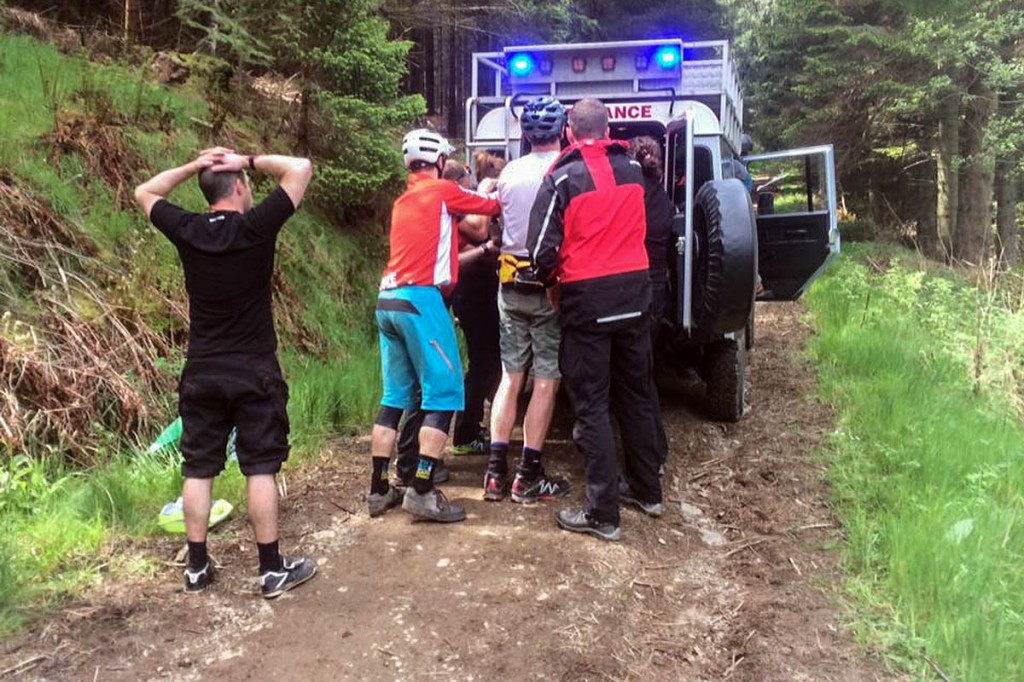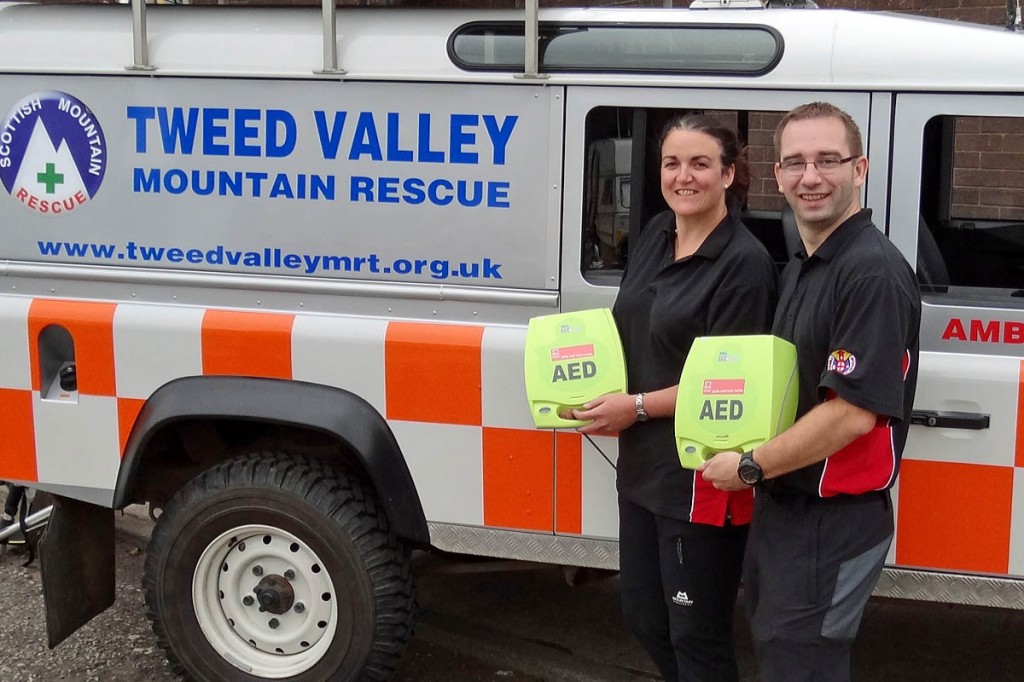Rescuers used a defibrillator acquired by their team to help save the life of a mountain biker suffering a heart attack.
Tweed Valley Mountain Rescue Team was called to the scene near Peebles when the man suffered a cardiac arrest while competing in an event.
It was the first time one of the team’s two automatic external defibrillators had been used to save someone.
A team spokesperson said: “A seemingly fit and well middle-aged competitor in a mountain bike event suffered a cardiac arrest whilst competing. He was attended to promptly by an event marshal, members of Tweed Valley Bike Patrol and other competitors who happened to be medically trained.
“Basic life support and [cardio-pulmonary resuscitation] commenced as soon as the cardiac arrest was identified.
“Within four minutes of the cardiac arrest, members of Tweed Valley Mountain Rescue Team and our AED were on scene. Basic life support continued and our AED was used to provide a life-saving electric shock to the casualty. CPR continued until the Helimed [air ambulance] arrived after about 20 minutes to transport the casualty by air to the Royal Infirmary Edinburgh.”
Pete Matthews, Tweed Valley MRT team leader said: “I’m extremely proud of how the TVMRT members reacted to the incident today. All members of the team train hard to deal with a number of potential scenarios and it’s great to see that our medical and incident management training kicked into play today.”
Dr Alex McDonald, TVMRT medical officer said: “Today’s incident shows that a combination of basic life support training and having early access to an AED makes a real difference in the short time period after a casualty suffers a cardiac arrest.”
The team said, although still in Hospital, the mountain biker is doing well.
The Tweed Valley team acquired the two defibrillators with the help of the British Heart Foundation in November 2012. They are carried on the team’s two Land Rover ambulances.
The machines can give the heart a controlled electrical shock. For every minute that passes without defibrillation during a cardiac arrest, chances of survival decrease by about 10 per cent. Research shows that giving a controlled shock within five minutes of collapse provides the best possible chance of survival.

